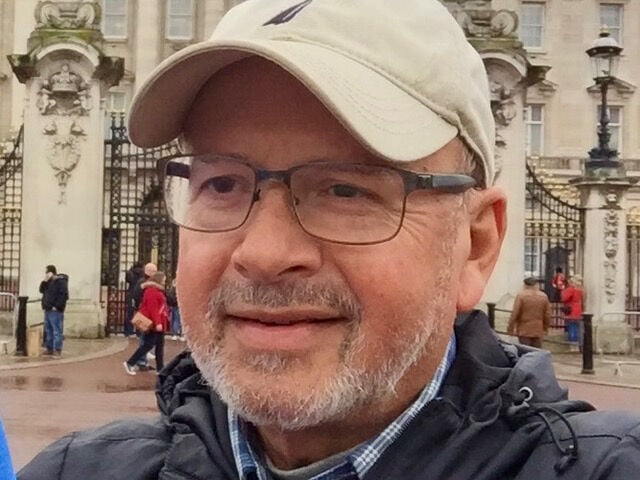The head of the Citizens Clean Elections Commission insists his agency violated no laws or rules in refusing to let the Green Party nominee for U.S. Senate participate in the commission-sponsored debate.
In a letter to state Sen. Jake Hoffman, Tom Collins said there is a reasonable basis for limiting the planned Oct. 9 event to Democrat Ruben Gallego and Republican Kari Lake. He said allowing the Green Party’s Eduardo Quintana to be on the same stage would dilute the time within the 56-minute debate for viewers to hear from the other candidates, who have shown significant public support through the number of votes they got in their respective primaries.
It comes down to fulfilling the commission’s statutory role of public education, Collins said.
Collins also contends that, strictly speaking, Quintana is not a “candidate,’’ at least under commission rules, who can participate in a debate.
“It appears that Mr. Quintana has no campaign committee registered with the Federal Elections Commission as required by federal law for candidates to raise campaign funds,’’ he told Hoffman.
Collins also disputed Hoffman’s contention that, in excluding Quintana, the commission violated its own published rules.
The rule governing debates says write-in candidates in the general election will not be invited to participate, but Collins said that’s as far as it goes.
“The rule does not say that the commission must invite everyone who may appear on the general election ballot,’’ he said. “So the discretionary decision about who to invite to the 2024 debates did not transgress an existing administrative rule.’’
And, Collins said, the decision of who to invite, by itself, does not constitute a new rule, something that would require public hearings and review by the Governor’s Regulatory Review Council.
This comes in response to Hoffman, a Queen Creek Republican who chairs the Senate Government Committee, asking Collins to explain the decision to exclude Quintana.
He specifically questioned the commission’s decision to invite only those who received at least 1,239 votes in their party’s primary, a figure equal to 1% of all the votes cast in all the races combined.
Quintana, a write-in at the primary level, tallied just 282 votes.
But there was no way he could have met the threshold because there are fewer than 3,400 registered Green Party members in the state. The party chose to have a closed primary — meaning independents could not cast ballots in that race — before they knew of the commission’s new 1% minimum.
The response did not satisfy Hoffman.
“The Clean Elections Commission clearly believes they’re above the law,’’ he said Friday. “It appears they chose to subvert the voter-approved process in an effort to deter participation of a candidate in a debate who will lawfully appear on the general election ballot.’’ He was referring to the 1998 ballot measure creating the commission to provide the option of public funding for candidates and requiring it to do voter education, including debates.
Hoffman didn’t make clear what, if anything, his committee will do about it. “The investigation continues,’’ he said.
But Quintana, who said the new rule — or whatever it is — was sprung on him and the Green Party at the last minute, said he is weighing a lawsuit.
The Tucson resident pointed out that the Green Party had to submit about 63,000 signatures on petitions to gain ballot status for its candidates, an indication that there is public support.
Traditional thinking is that Green Party candidates take votes from Democrats while Libertarians can siphon votes from Republicans. There is, however, no Libertarian candidate in this year’s Senate race.
In a social media post, Hoffman said the change from the procedures in prior years “exposed (the commission) allegedly rigging the U.S. Senate debates to help Democrat Ruben Gallego against Republican Kari Lake.’’
Lake’s campaign committee, in its own post, said the commission “shouldn’t be disenfranchising third parties just to protect Gallego.’’
A Gallego spokeswoman said Lake agreed to the debate, under the rules that had just the two of them participating. “And now that she’s getting cold feet she wants to change the rules.”
Recent polls show Gallego with an edge, though Lake claims that while she is behind, the difference is small and can be overcome.





